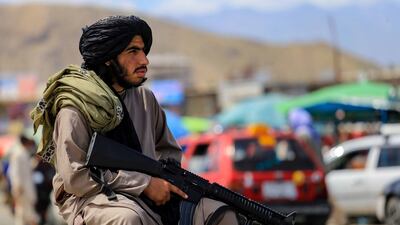A UN report has warned that despite the Taliban consolidating their grip on Afghanistan, terrorist groups still pose a “serious threat” within the country, the surrounding regions and beyond.
The report compiled by the UN's sanctions monitoring team said there is concern that Afghanistan will remain a source of insecurity for Central Asia and the region. It also questioned whether the Taliban can “address the many significant and continuing challenges”.
“The country continues to be perceived as a permissive or friendly territory by terrorist groups, which also aspire to project threats globally,” it read.
ISIS-Khorasan Province, the regional affiliate of the ISIS terrorist group, is the “greatest internal threat” within Afghanistan, the report said.
It also noted that ISIS-K has “successfully infiltrated” the Taliban's ministries of interior and defence, as well as the General Directorate of Intelligence.
According to the Afghanistan United Front (AUF) Intelligence Commission, the total number of ISIS-K members in Afghanistan has reached 9,000 and is rapidly increasing.
The group, which is focused on delegitimising the Taliban authorities, has acquired operational capabilities for suicide bombings, insurgency and assassinations, and are capable of launching assault operations on government installations or economic centres across the region.
Afghan citizens acting on behalf of ISIS-K are, according to the AUF, conducting attacks in Pakistan, Iran and Russia.
“The more the de facto authorities [Taliban] claim that foreign terrorists do not use its territory to threaten other member states, the more [ISIS-K] is determined to prove them wrong,” the report said, pointing to the group’s deadly attack on a Moscow concert hall in March.
The assessment presented to the 15-member Security Council also noted that Al Qaeda continues to thrive in Afghanistan, disseminating propaganda to increase recruitment while taking advantage of its long-term ties to the Taliban, despite its reduced low-profile.
It noted Al Qaeda remains “strategically patient”, co-operating with other terrorist groups in Afghanistan and “prioritising” its continuing relationship with the Taliban.
Sami Sadat, the head of the Afghanistan United Front organisation, told The National, that Al Qaeda is “currently transforming into a more conventional and political force as they also increase their recruitment while making more alliances with Iran and Taliban.”
While the Taliban have done much to constrain the activities of Al Qaeda and their affiliates, UN member states remarked that its reorganisation and training activities, as well as new travel into Afghanistan by “experienced instructors”, indicated that the group still uses Afghanistan as a “permissive haven”.
According to intelligence gathered by UN member states, Al Qaeda affiliates in the region have increased from 4,000 to 6,000 fighters and its operatives in the country remain active, engaging with warlords, propagandists, recruiters and financiers.

















